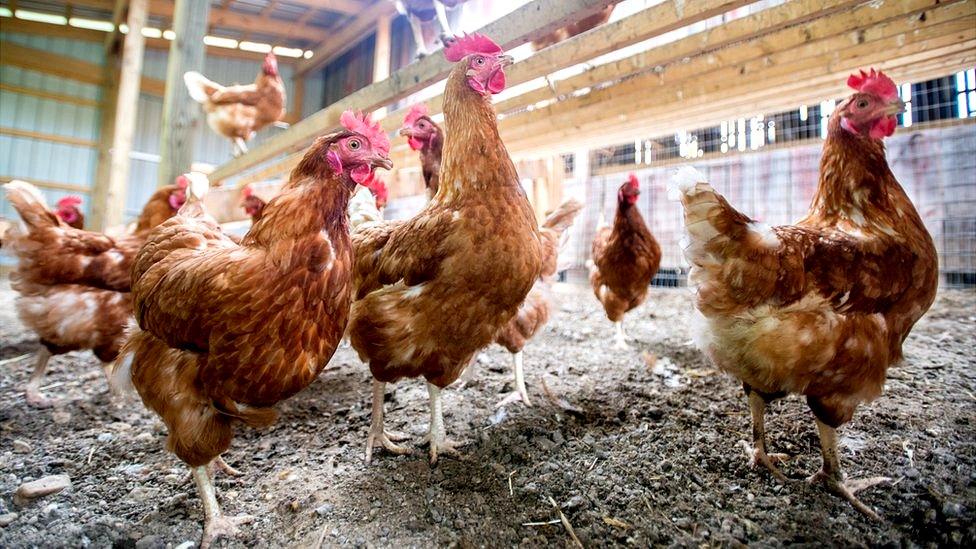Avian flu: Poultry to be allowed outside in Wales as bird flu risk falls
- Published
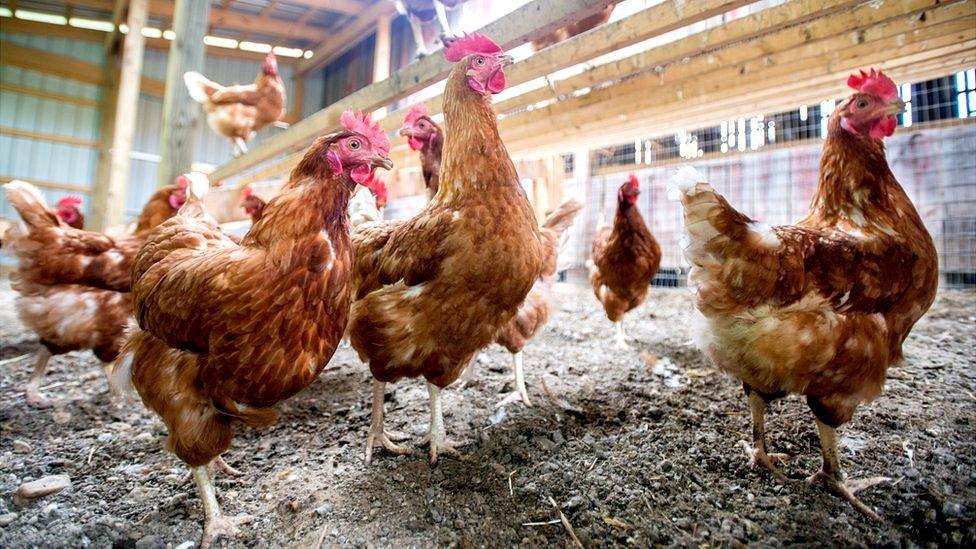
Since 2 December it has been a legal requirement for all bird keepers to keep their birds indoors
Measures requiring poultry and captive birds in Wales to be kept indoors will be lifted on 18 April.
The rules were imposed in early December to tackle avian influenza.
On Tuesday, the Welsh government said that while the bird flu risk had reduced, there was still the chance of outbreaks.
Wales' Chief Veterinary Officer Richard Irvine said it was vital that bird keepers "keep practicing rigorous hygiene and biosecurity measures".
More than 330 bird flu cases have been confirmed in the UK since October 2021 - an unprecedented number.
Extra biosecurity requirements, imposed on 2 December as part of an Avian Influenza Prevention Zone (AIPZ) covering all of Wales, will remain in place after 18 April.
That includes a mandatory biosecurity self-assessment for all poultry and captive bird keepers to complete.
Keepers are being advised to spend the next week preparing for the release of birds, particularly in their outdoor areas, including cleaning and disinfecting equipment.
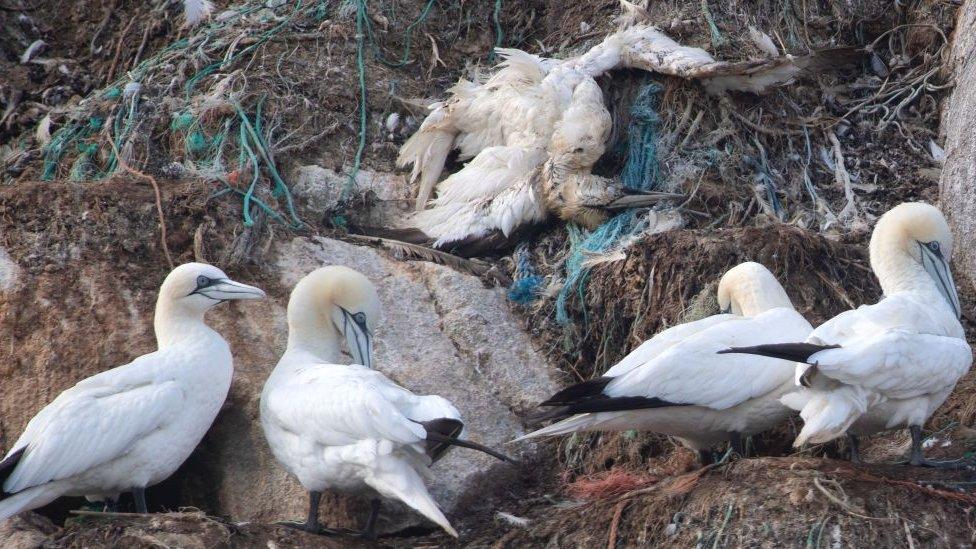
The worldwide spike in bird flu has been particularly harmful to protected seabird species like the gannet
Confirming the compulsory housing order would be lifted next week, Dr Irvine said it would be "welcome news for bird keepers" and that he wanted "to thank them for all their efforts in keeping their flocks safe".
"What is essential now is that keepers, whether it be for a few birds or thousands, keep practicing rigorous hygiene and biosecurity measures to prevent outbreaks of avian influenza," he said.
"This includes continuing to complete the mandatory biosecurity self-assessment checklist to help keepers identify what is needed to protect their birds.
"It's also vital everyone remains vigilant for any signs of disease in their birds and wild birds, reports it and seeks advice immediately if they have any concerns."
Keepers of poultry and other captive birds will continue to be required to take "appropriate and practicable steps" to prevent bird flu.
These include feeding and watering birds in enclosed areas to discourage wild birds and minimising movement of people in and out of bird enclosures.
The advice remains that the risk to human health from the virus is very low. Food standards bodies say that avian influenzas pose a very low food safety risk for UK consumers.
The mandatory bird housing order will also end in England next Tuesday, external.
Related topics
- Published18 June 2024
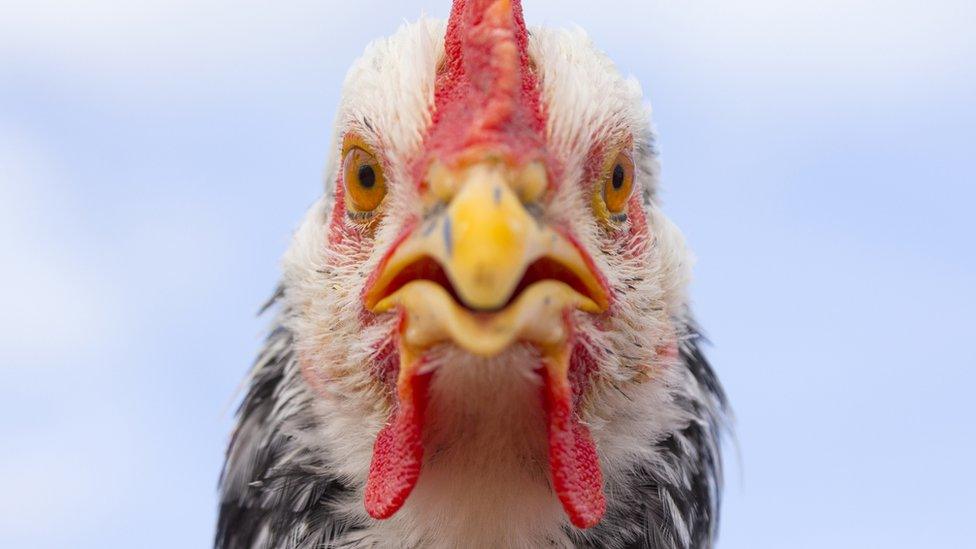
- Published25 February 2023
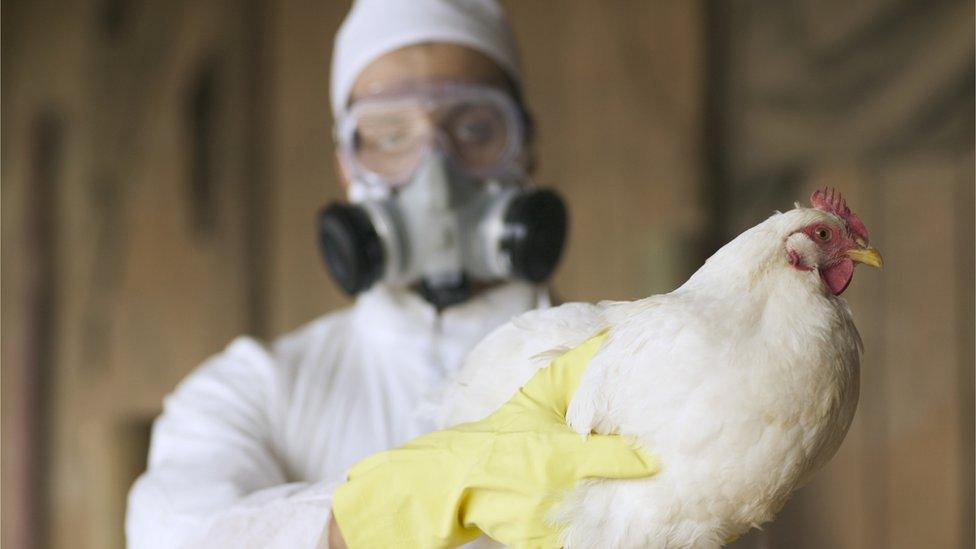
- Published2 February 2023
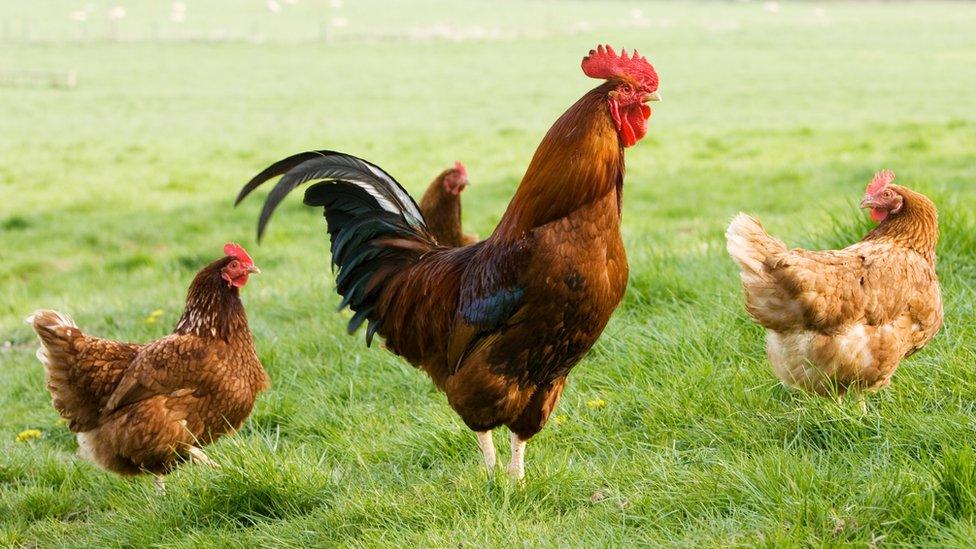
- Published25 November 2022
